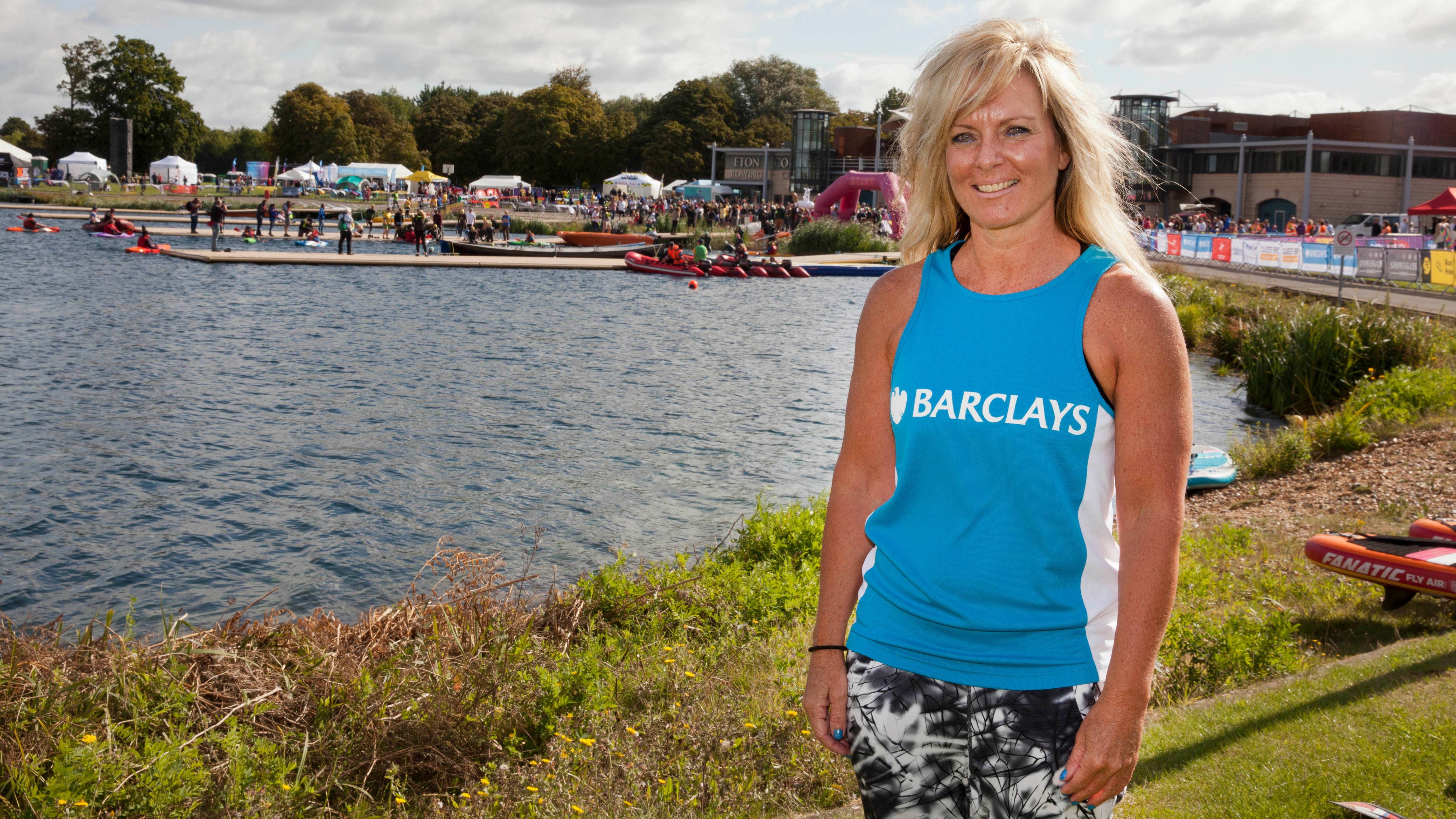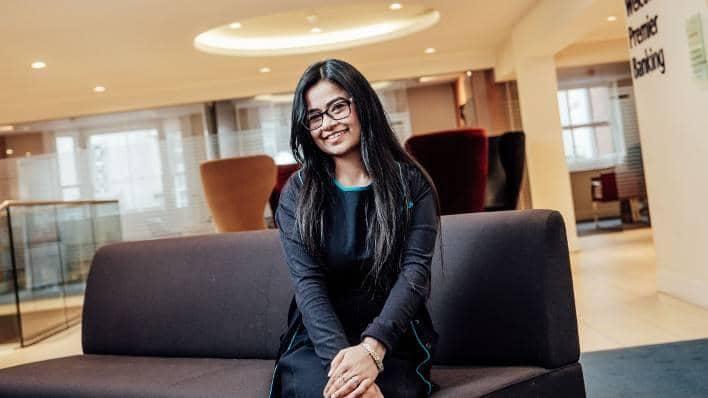
In The World: The ‘Digital Eagle’
Digital Eagle Shweta Walia explains why she joined a programme to train 2,100 Marie Curie nurses to use computer tablets, freeing them to spend more time caring for patients with a terminal illness
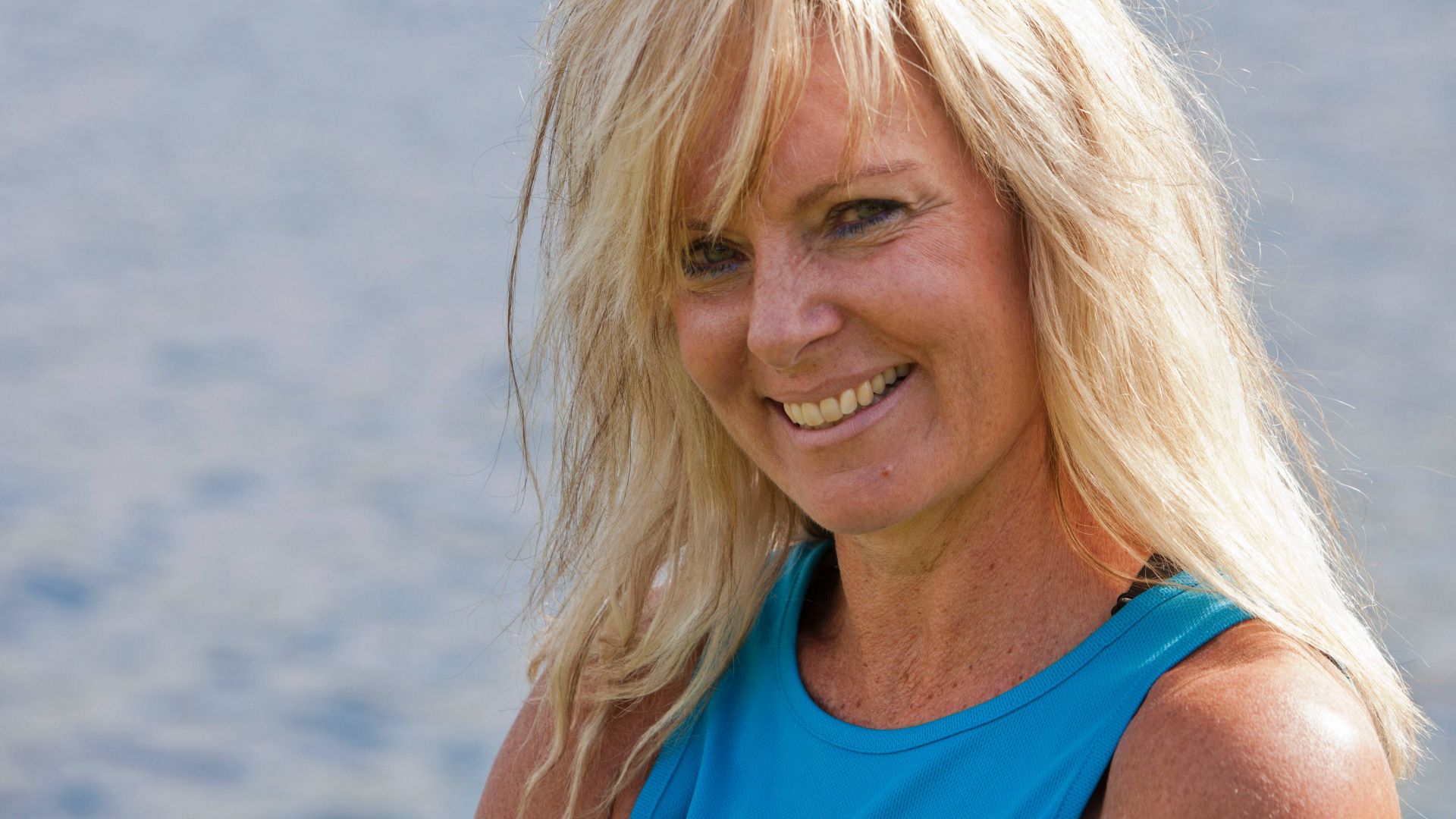
Tracy Cox-Smyth works as an Executive Assistant in the Investment Bank at Barclays – and volunteers as a “buddy” at sporting events for disabled athletes, including wounded ex-servicemen and women, around the world. The retired Olympic and Commonwealth springboard diver tells us why dedicating her free time to supporting other athletes has become her “passion and joy”.
I started working at Barclays seven years ago, but in my spare time I buddy adaptive athletes at various events. Wheelchair users frequently need a buddy, for example in triathlon transitions or just to be on hand in case something happens. So I’m just there, available for them. Most are self-sufficient but there are times when it just makes it easier for them to be able to say: “Can you quickly grab me a bottle of water?”
At August’s Superhero Series, Tracy was the swimmer for the Barclays team alongside Paralympian David Weir and visually impaired cyclist Laura Turner.
A few years ago, at a work event, I met some ex-military sports recovery athletes working with the charity Help for Heroes and Walking with The Wounded who had been injured in Iraq and Afghanistan. One of them had been in the Parachute Regiment – he’d been blown up and lost an arm, along with the others who’d also lost limbs. They spoke about how sport brought them out of depression. They had suffered from – or had overcome – post-traumatic stress disorder.
All of these ex-servicemen were using some form of sport, whether it was conquering Everest or the North Pole Challenge or something else, to help them recover. It gave them a new lease of life, brought them back into the brotherhood that they’d missed and because they were now part of a team, it gave them purpose and was making them healthy again. I thought: “I could make a difference here.” These are the kinds of people I wanted to work with in sport. And that’s how I got involved.
I’ve been volunteering now for seven years. I’ve helped train, buddy and mentor athletes at the Warrior Games, Invictus Games and, for the past four years, at the Working Wounded Games in the US. I also volunteer with Help for Heroes, most recently for the Enduroman Arch to Arc event, which is a 55-hour triathlon from London’s Marble Arch to the Arc de Triomphe in Paris. At August’s Superhero Series, I was the swimmer for the Barclays team alongside Paralympian David Weir and visually impaired cyclist Laura Turner.
Volunteering in this way is very personal for me because I was a high performance athlete for 30 years. I was born and raised in Zimbabwe and was into everything sporty from about the age of three – my father was a physical training instructor in the army and was heavily involved in my coaching. I started diving when I was six and first represented my country at eight, going on to compete as a springboard diver at the Seoul and Barcelona Olympics and to win silver at the Commonwealth Games in Auckland in 1990. I was shortlisted to represent Zimbabwe at the 1996 Olympics in Atlanta, but had to withdraw due to injury and that was the end of my elite sporting career. Being raised in Africa then, we didn’t have the specialists who could manage our injuries like they do nowadays. You’re hitting the water at 30-40 miles an hour, and over time you get repetitive injuries to your neck, shoulders, spine. So my body just said, no. Enough is enough.
"When I buddy, I’m buzzing. It makes me relive my athletic career: the highs, the lows. Working in disability sport is my passion and my joy."
I’ve lived in London since 2000, when I left Zimbabwe because of the deteriorating political situation, and I haven’t looked back. I found it very difficult when I finished diving to switch the mentality from being so focused and going for gold, to doing sport for fun. It’s very, very hard to come out of that. Volunteering gives me back that sense of purpose and being part of a team again, which I’ve missed. It exposes me to sport again but in a different capacity, and getting in touch with people I admire in the Olympic and Paralympic fields. I love giving back to these people, knowing that I can make a difference.
If I can help someone to keep going, it’s just so humbling and so rewarding. A couple of months ago, someone in the States who I once buddied took his own life. Combating mental ill health is still a work in progress. It doesn’t get discussed enough, but these are the things that go through people’s minds. They get depressed, some suicidal. If you put them in a healthy sporting environment – I’m not saying it’s the be-all and end-all but it certainly helps. It gives them goals and it gives them the camaraderie again and it gives them something different to think about.
When I buddy, I’m buzzing. It makes me relive my athletic career: the highs, the lows. Watching people struggle, then the joy on their faces when they cross the finish line. It definitely stays with me. Working in disability sport is my passion and my joy.

Digital Eagle Shweta Walia explains why she joined a programme to train 2,100 Marie Curie nurses to use computer tablets, freeing them to spend more time caring for patients with a terminal illness
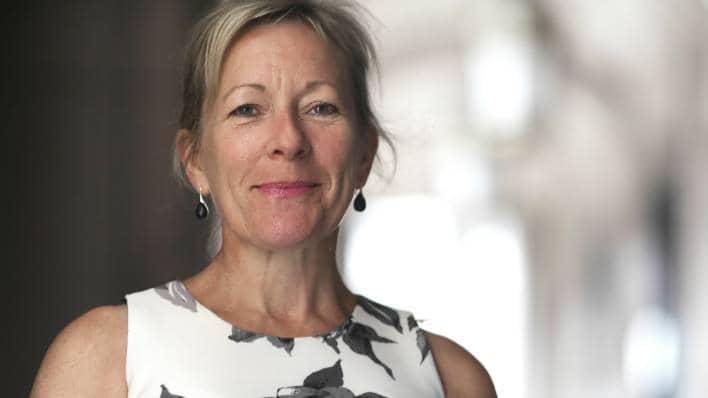
Rachel Scandling, Strategy and Optimisation Lead, left a career in the Royal Navy to join Barclays two years ago
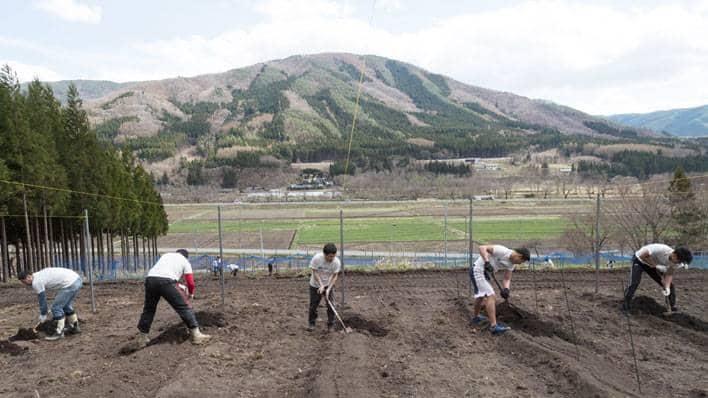
Keita Era, an Analyst based in Tokyo, tells us about his volunteer work with those badly affected by the Tohoku earthquake and tsunami in 2011 – and the fulfilment he gets from supporting them back into meaningful jobs
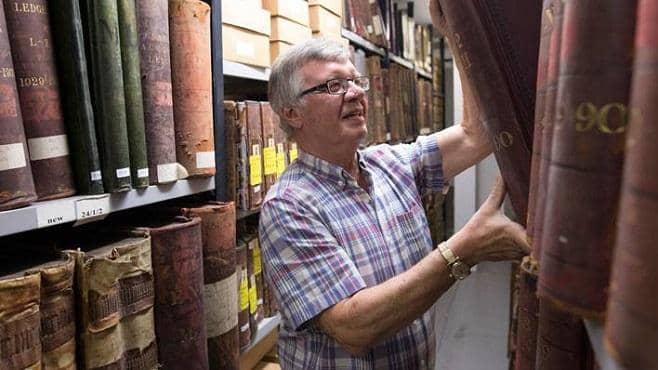
We talk with Alan Thomond, a retired colleague who now volunteers at the Barclays Group Archives in Manchester

